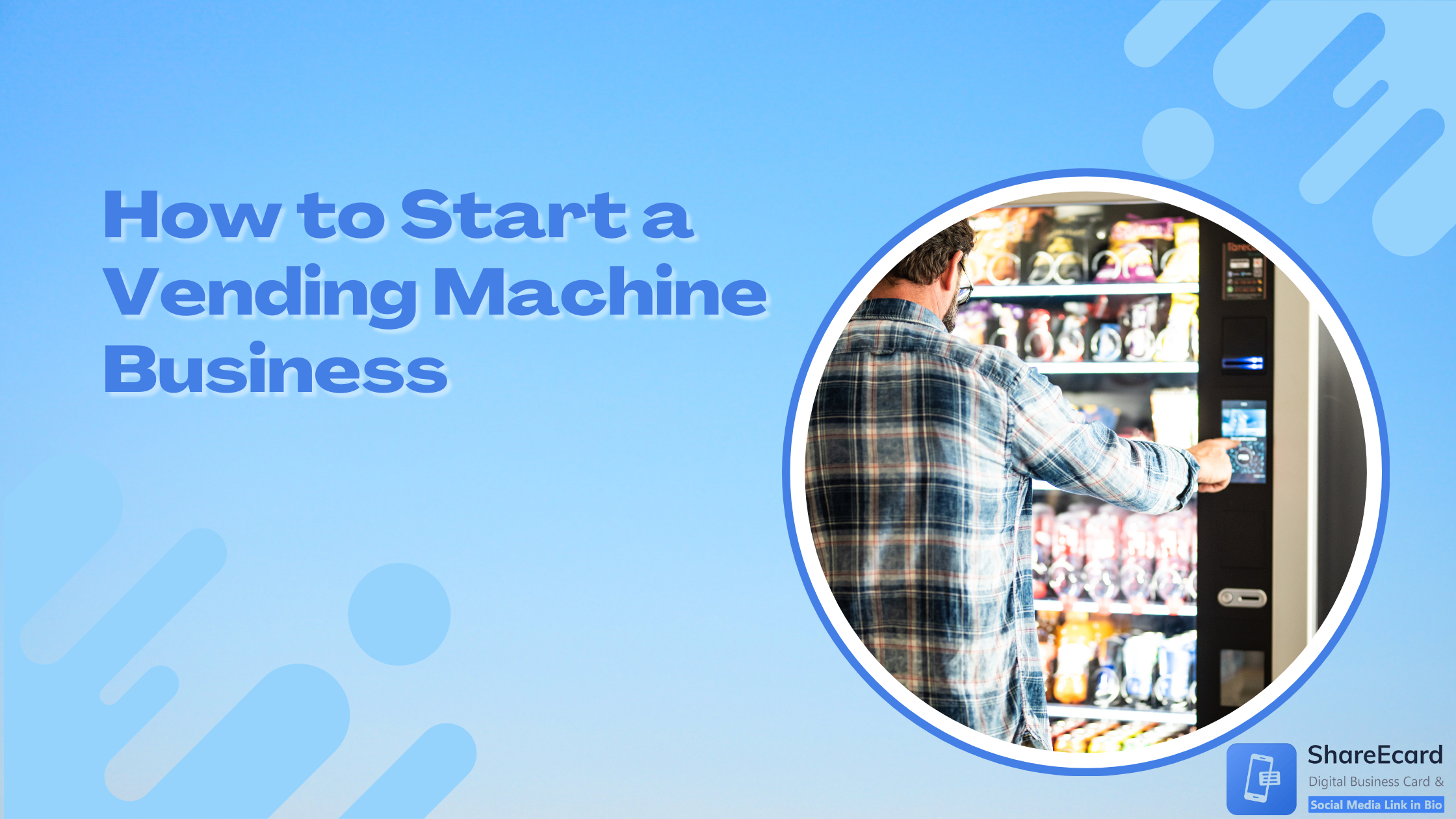The vending machine industry offers a lucrative opportunity for entrepreneurs looking to tap into the growing trend of convenience and automation. Vending machines cater to a wide range of needs, from snacks and beverages to electronics and personal care items, making them a versatile business option. This guide is designed to walk you through the process of launching, operating, and scaling a successful vending machine business, highlighting the benefits, steps, and key considerations to ensure your venture thrives. With the right approach, your vending machine business can become a significant source of income and a fulfilling entrepreneurial journey. Read on!
Benefits of Starting a Vending Machine Business
Starting a vending machine business comes with many advantages, making it a smart choice for entrepreneurs looking to enter a growing industry. Some of the major benefits are:
- Low Startup Costs: Vending machine businesses require a relatively small initial investment compared to other ventures, allowing for a more accessible entry point for new entrepreneurs.
- Passive Income Potential: Once established, vending machines generate income with minimal daily management, offering a source of passive income.
- Flexible Hours: This business model provides the flexibility to work around your schedule, perfect for balancing other commitments.
- Scalability: Starting small and expanding as your business grows is straightforward, making it easier to scale at your own pace.
- Diverse Location Opportunities: Vending machines can be placed in various locations, broadening your market reach.
- Low Overhead Costs: With no need for a physical storefront and minimal staffing requirements, overhead costs are significantly reduced.
Step-by-Step Approach to Starting a Vending Machine Business
Starting a vending machine business involves several important steps. This guide breaks down the process into clear, straightforward steps to help you start straight. Let’s dive into the details:
- Conduct Market Research
Understanding your local market is crucial. Identify potential locations and the types of products in demand. Use surveys, online tools, and direct feedback to gather insights on consumer preferences and competitor offerings.
- Identify Your Niche
Identifying your niche is crucial in setting your vending machine business apart and attracting a dedicated customer base. Here are key points to consider:
- Market Needs: Assess the demand in your target locations. Are consumers looking for quick, healthy snack options, or is there a gap in the market for high-quality coffee vending machines?
- Unique Offerings: Choose a niche that allows you to offer something unique, such as gourmet coffee, healthy snacks, electronics, or even niche products like eco-friendly personal care items.
- Customer Base: Understand who your customers are. Office workers might prefer coffee and healthy snacks, while students may be more interested in electronics and convenience foods.
- Competition: Look at what existing vending machines are offering and find a gap you can fill. Standing out from the competition can give you a significant advantage.
- Sustainability: Consider the long-term viability of your chosen niche. Trends can change, so it’s important to select a niche with enduring appeal.
- Understand Your Customers
Creating detailed customer personas helps tailor your product offerings and marketing strategies to meet the needs of your target audience. Consider factors like demographics, purchasing habits, and location-specific demands to better align your services.
- Develop a Business Plan
Developing a comprehensive business plan is essential for the success of your vending machine business. Here’s what it should include:
- Business Structure: Define whether you’re operating as a sole proprietorship, partnership, LLC, or corporation. This impacts your taxes, liability, and business operations.
- Services Offered: Detail the types of vending machines and products you plan to offer, including any niche markets you intend to serve.
- Pricing Strategy: Outline how you will price your products to be competitive yet profitable, considering costs and market rates.
- Marketing Approach: Describe how you plan to promote your vending machines, including both digital and traditional marketing strategies.
- Financial Projections: Provide an estimate of startup costs, ongoing expenses, and projected revenue. Include break-even analysis and future growth expectations.
- Market Research Findings: Incorporate research on your target market, customer needs, and competitive landscape to show how your business will meet market demands.
A well-crafted business plan serves as a roadmap for your venture, guiding decisions and helping secure financing or partnerships.
- Legal and Financial Setup
- Choose a Business Name and Register Your Company: Select a memorable name and register your business as a legal entity (e.g., LLC, sole proprietorship).
- Obtain Necessary Licenses and Permits: Research and secure any required licenses or permits to operate in your chosen locations.
- Invest in Insurance: Protect your business with the appropriate insurance policies, including liability and property insurance.
- Open a Business Bank Account: Keep your personal and business finances separate by opening a dedicated bank account for your business.
- Set Up Accounting Systems: Consider using accounting software or hiring a professional to manage your finances effectively.
- Branding and Marketing
- Develop a Strong Brand Identity: Create a compelling brand with a professional logo, business name, and marketing materials that reflect the quality of your services.
- Craft a Marketing Strategy: Utilize both digital and traditional marketing channels to promote your vending machines. Consider social media, SEO, local advertising, and direct outreach to potential location partners.
- Engage Your Community: Participate in local events and build relationships with businesses and organizations that can benefit from your vending machines.
- Equipment and Supplies
- Select Quality Vending Machines: Choose machines that are reliable, easy to use, and capable of accepting various payment methods.
- Stock Your Machines with Desired Products: Based on your market research, fill your machines with products that appeal to your target customers.
- Manage Inventory Efficiently: Keep track of your stock levels to ensure your machines are always filled and ready for customers.
- Pricing Strategy
Set competitive yet profitable pricing for your products. Analyze competitor pricing and consider your costs to determine pricing that attracts customers while maintaining healthy margins.
- Launch Your Services
With your machines in place and stocked, officially launch your vending machine business. Utilize your marketing strategy to create buzz and attract customers. Excellent service and customer satisfaction will be key to generating repeat business and word-of-mouth referrals.
- Customer Service
Outstanding customer service can significantly differentiate your vending machine business. Ensure your machines are well-maintained, respond promptly to any issues, and actively seek customer feedback to improve your offerings.
What You’ll Need for Starting a Vending Machine Business
Starting a vending machine business is straightforward but requires some essential steps and tools. Here’s what you need to kickstart this venture:
- Business License and Insurance: The first step is to legalize your operation. This means obtaining a business license, which varies by location, so check with your local government. Insurance is also crucial to protect your business against liabilities. General liability insurance covers most incidents, but if you hire employees, consider workers’ compensation insurance too.
- Vending Machines and Products: Your business’s backbone is its vending machines and the products you choose to sell. The type of machines—whether they’re for snacks, drinks, or specialty items—should match your target market’s needs. For instance, a gym might benefit from healthy snacks, while an office might prefer a variety of snacks and drinks.
You can buy new, lease, or purchase used machines depending on your budget. Selecting the right products is equally important; they should cater to your customers’ preferences and be adaptable based on feedback and sales data. Efficient inventory management ensures your machines are always stocked and reduces waste.
- Branding Materials: A strong brand helps your vending machine business stand out. This includes a catchy name, an appealing logo, and the design of your machines. Effective branding communicates the quality of your service and appeals to your target audience, making your machines more recognizable.
- Transportation: You’ll need reliable transportation to move your machines and restock products. The size of your vehicle will depend on the number and size of machines you’re managing. Consider the costs of maintenance, fuel, and insurance in your business planning.
- Marketing Plan: Attracting customers to your vending machines requires a solid marketing strategy. Utilize a mix of online methods like social media and SEO, and offline tactics such as local partnerships and community engagement. Excellent service and word-of-mouth recommendations are invaluable for growth.
With careful planning and execution in these areas, you’re well on your way to launching a successful vending machine business.
Conclusion
Starting a vending machine business is a promising venture with the potential for significant returns. By following this step-by-step guide, you can navigate the process of setting up your business, from conducting market research to launching your services. Remember, success in the vending machine industry hinges on understanding your market, offering quality products, and providing exceptional customer service.
With dedication and strategic planning, your vending machine business can grow from a passive income stream to a thriving enterprise. Stay committed, and seize the opportunity to create a successful business in this dynamic industry.
For more such helpful guides, you can follow ShareEcard.




